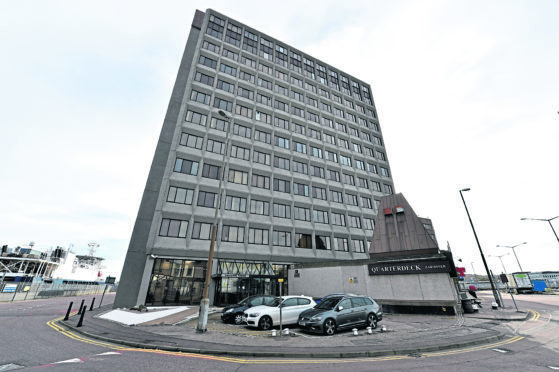Auction Underwriting
Introduction
This is best illustrated by an example. In about 1985 I bought a tyre depot and filling station on a main road in Sheffield for £165,000. It was let at about £12,000pa so not especially cheap but there was a decent length of lease and a rent review in 18 months. Sure enough, at the rent review the rent went to £21,000pa and I put it into a London auction with a guide price of £200,000
After a week or so the auction house rang me up and said they had a guy who would underwrite it for £220,000. I had no idea what that meant and the man explained to me that if it failed to sell, I had a guaranteed buyer at £220,000 but if it went over £220,000 we would split the difference. So, if it went for £250,000, say, the underwriter would make £15,000 (half the difference).
I mulled this over and rang him back an hour later to say I would do it. He rang me back the next day to say that the underwriter had changed his mind. Well, fair enough. As it happened, it failed to sell in the auction but was sold immediately afterwards for £220,000. Job done.
Pubs
A month later an auction catalogue arrived for 12 pubs being sold by Whitbread with a guide price of £400,000 for the whole lot (those were the days). I rang the auctioneer and asked if they would let me underwrite the auction. The auctioneer had no idea what I was talking about but I explained the concept and the main board of Whitbread agreed the deal at £400,000. On the big day I stood at the front bidding very aggressively but to a very carefully calculated script (a range of prices on each lot depending on the current picture).
Eleven pubs sold but one did not - so I walked off with a free pub (The City in Oldham Street, Manchester) and a net fee of £89,000. Not a bad day's work.
After that I did another one and picked up £35,000.
Disaster Strikes
So far so brilliant
In the next auction Whitbread offered four pubs which unknown to me (I knew nothing about pubs - even now I know nothing about pubs) were the four roughest pubs in Manchester. Looking back, I think this was specially tailored to catch me out - and it did. The Flat Iron in Salford, The Platford in Old Trafford and the Benchill in Wythenshawe. Plus another one the name of which I have forgotten.
Needless to say, only the last one sold and I was left with the three roughest pubs in Manchester. I needed managers so I rang the SAS in Hereford (yes, really) but they said that they could tackle armed terrorists in the Middle East but Salford was a step too far.
The first year we lost £80,000 and I realised that I needed somebody who knew about pubs so I asked around and found somebody who actually did know how to run pubs.
Now when you set up a pub company, you perm any combination from the following:
AscotBelgravia
Grosvenor
Kensington
Mayfair
Taverns
Hostelries
Inns
So you could call your chain of pubs 'Belgravia Taverns' for example. Or maybe 'Ascot Inns'. You get the idea. So I called mine 'Busy Pubs'. I wanted to call it 'Really Rough Pubs' but people though that was a step too far. If you look at Companies House somebody subsequently picked up the name so the one listed currently is NOT the same company - same name but different company number.
As it happens, they were very busy and we built it up to 28 pubs in due course (you either need no pubs or a lot to spread the management load - preferably no pubs). At this point they stood me at £2m but turnover was dropping by 2% pa as customers were killed so I sold them for £4.25m and breathed a huge sigh of relief. Phew. At that point pub prices soared into the stratosphere but too bad - I had moved on.
An Interlude
For the next 25 years I did not really do much in the property market as I was concentrating on Artifical Intelligence (see MOPEKS) but I got stalled at the next step, fortunately. I say 'fortunately' because the next step is the singularity and then disaster on a scale hard to comprehend - you can buy my book MOPEKS - A Route to Intelligence if you want to know how the world will end.
Then in 2017 I thought I would have another go as I really want to buy a decent transcontinental jet and these things are a bit expensive to run - something like a Global5000. We missed one for $5m which was a real bargain (they cost $40m new) but will keep looking.
Current Day
In 2018 I did a couple of underwriting exercises including this one where I underwrote it for £20,000. As it happens there were zero bids so given there was no reserve it could have been bought for maybe a few hundred pounds. This purchase could have gone badly wrong (there was an annual deficit of about £400,000) but by sheer good luck I managed to emerge in a quite satisfactory state.
Is there anything more irritating than false modesty? So let me re-write that "by exercising every ounce of ingenuity, 50 years experience and £15,000 in legal fees we managed to escape from the dragon's den clutching the dragon's balls, the pot of gold and the Princess"
Please click on image for details
I also underwrote the sale of this in the March 2018 Acuitus auction at £200,000. Again there were no bids and as the guide was £100,000 I could probably have got it for £80,000
Please click on image for details
Conclusion
Underwriting is now a mug's game - the dice are loaded against you and the auctioneers will only let you underwrite a sale if they know for an absolute certainty that there are no bidders. In the days before the internet both you and the auctioneer were flying blind - these days it is just you who is blind - DON'T DO IT
I should have realised that after one auction but I guess my brain is slowing down
Bob Cory
Modified on 19/09/2019 at 09:47:11 by ℗ Bob Cory

